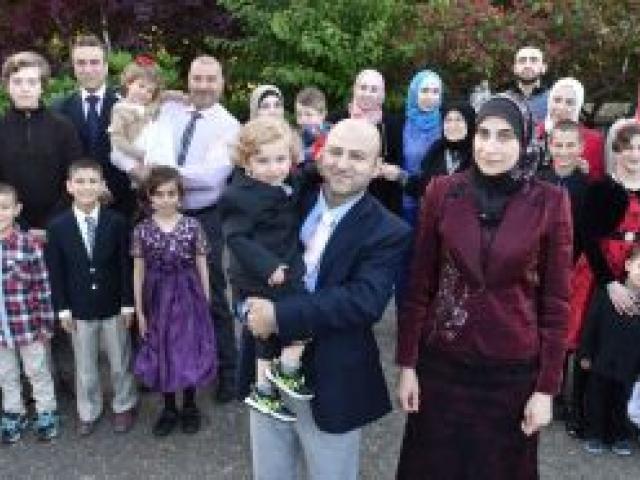
Dunedin neurosurgeon Ahmad Taha said members of his extended family living in Dunedin were "very excited'' when they heard the city had been chosen as a resettlement location for refugees.
• Refugee response shows city 'ready and willing'
• Migrants flock to the Otago region
Mr Taha arrived in Dunedin in July 2010 for a six-month locum position as Dunedin Hospital's sole neurosurgeon.
He had since taken up a permanent position, and helped three of his siblings and their families escape the conflict in Syria and settle in Dunedin.
They all loved living in Dunedin and were looking forward to being joined by some of their fellow Syrians when refugees began arriving in April, he said.
Watching the news and seeing fellow Syrians suffering made them feel a "little guilty'' given how peaceful their lives were in Dunedin.
"It just makes me feel happy that we will be sharing our comfortable lives with other Syrians.''
He had already started thinking about how the family could help refugees once they arrived and had met Immigration Minister Michael Woodhouse and spoken to people at Dunedin's mosque.
He and other members of the family would help bridge "the cultural gap between Syrians and Kiwis'' and offer them anything they needed to help settle in.
The family's presence alone would be reassuring to the new arrivals.
"Wherever you go anywhere in the world, if you know someone in that place from your country, you won't feel as isolated.''
He believed Dunedin was the "perfect place'' for Syrian refugees to be placed as people were friendly and it was not too big or too small.
In larger cities like Wellington or Auckland it would be easier for refugees to become isolated.
He called on Dunedin residents to help the refugees integrate into society.
"The thing we would hope for is some patience and tolerance from the community in Dunedin because many of [the refugees] wouldn't know how to deal with foreigners, many of them wouldn't know what the culture is like,'' he said.
It was important people remembered the refugees were not coming to New Zealand by choice or for economic reasons, but had been forced out of Syria by the war and the regime.
Many would have had family members kidnapped, imprisoned or killed.
"They will be traumatised by war, traumatised by how people look at them [as refugees].''
Once they settled in, Syrian refugees would have a lot to offer New Zealand society.
"Hopefully we can provide a better picture for the public about the Syrian people - who they are, how they live, our tradition.''
He also hoped the arrival of Syrians would help get rid of misconceptions about Islam which had grown since the Paris attacks.












